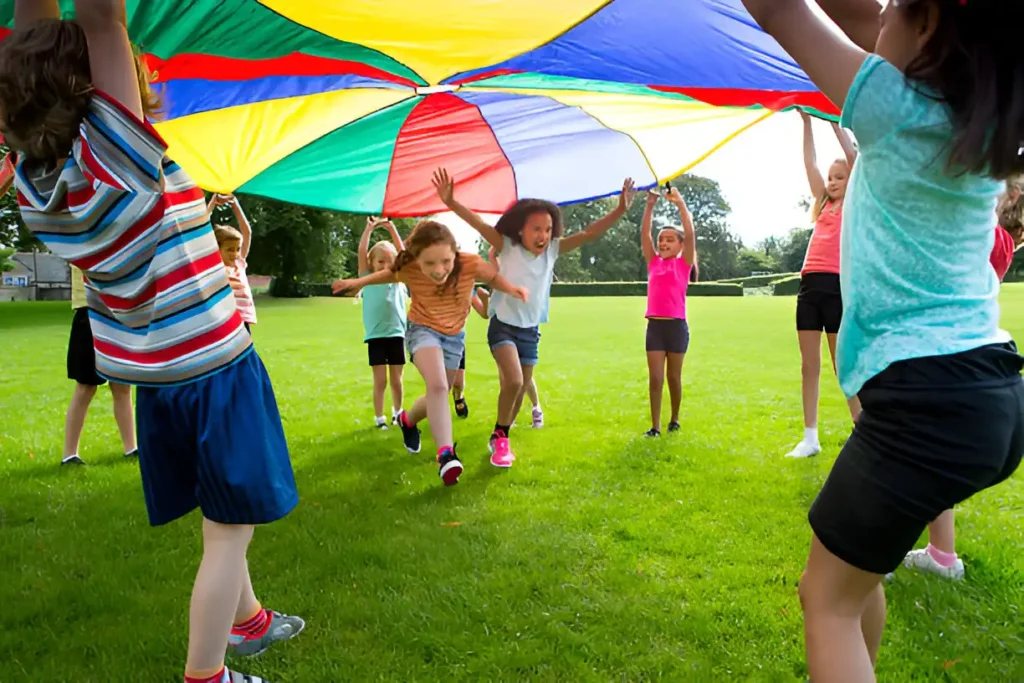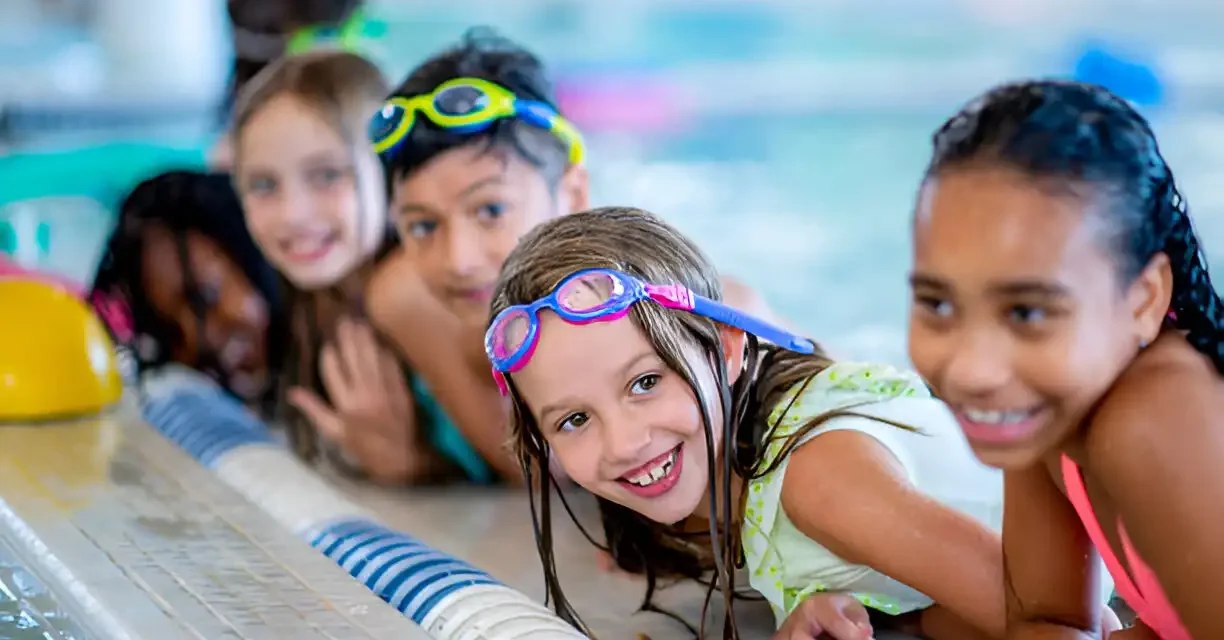Introduction
Recreation is more than just a fun activity; it is a crucial aspect of child development. It plays a significant role in fostering social skills, emotional intelligence, and physical health. For children who fall under the DEI (Diversity, Equity, and Inclusion) umbrella, recreation holds an even greater importance. These children may come from diverse cultural backgrounds, have varying abilities, or face different challenges compared to their peers. Ensuring that they have an inclusive space to play and grow is vital for their overall well-being. This comprehensive guide will explore how to create inclusive recreation spaces that cater to the needs of DEI children, offering practical tips and insights to make every child feel valued and supported.
The Importance of Recreation for DEI Children
Recreation is a powerful tool for a child’s growth and development. It offers opportunities to learn social norms, develop friendships, and express oneself creatively. For DEI children, who may face barriers to participation, recreational activities can be particularly transformative. Inclusive recreation ensures that every child, regardless of their background or ability, has the chance to experience the joys of play and the benefits of social interaction. By providing accessible and equitable play opportunities, we empower DEI children to develop resilience, confidence, and a sense of belonging.
Why DEI Principles Matter in Play Environments

Incorporating DEI principles in play environments is essential for creating spaces where all children feel welcomed and valued. Diversity, Equity, and Inclusion are not just buzzwords—they are the foundation of a healthy community. A DEI-focused play environment recognizes the unique needs of each child and strives to eliminate barriers that might prevent participation. Equity ensures that all children receive the support they need to fully engage, while inclusion fosters an atmosphere where differences are celebrated, and every child feels a sense of belonging.
Understanding DEI Children in Recreation
What Makes a Child a DEI Child?
A DEI child is one whose identity, background, or abilities require special consideration to ensure they are fully included in recreational activities. This includes children with disabilities, those from different cultural or linguistic backgrounds, and children who face socioeconomic challenges. Understanding what makes a child a DEI child is the first step in creating inclusive recreational spaces that cater to their unique needs.
Recognizing Diverse Abilities and Backgrounds in Play
Every child has a unique set of abilities and experiences that shape how they engage with play. Some children may have physical limitations, while others may have sensory sensitivities or come from cultural backgrounds that influence their play preferences. Recognizing and respecting these differences is key to ensuring that every child can participate meaningfully. By understanding the diverse abilities and backgrounds of DEI children, we can create recreational activities that are truly inclusive and enriching.
Creating an Inclusive Recreation Space

How to Set the Stage for Inclusive Play
Creating an inclusive recreation space requires intentional design and thoughtful planning. Start by considering the physical layout of the play area. Ensure that it is accessible to children with mobility challenges by including ramps, wide pathways, and adaptive play equipment. The environment should also be sensory-friendly, with quiet spaces for children who may feel overwhelmed by noise or activity. By setting the stage for inclusive play, we create a welcoming environment where every child can feel comfortable and engaged.
Practical Tips to Ensure Every Child Feels Safe and Welcome
- Establish Clear Rules: Set ground rules that promote kindness, respect, and inclusion. Make sure that all children understand that bullying or exclusion is not tolerated.
- Model Inclusive Behavior: Adults play a crucial role in setting the tone for inclusive play. By modeling empathy, patience, and respect, they encourage children to do the same.
- Use a Buddy System: Pairing DEI children with supportive peers can help them feel more comfortable and included. A buddy can assist with activities, offer encouragement, and help bridge social gaps.
Encouraging Empathy and Kindness in Group Activities
How to Foster Compassion Among Children
Empathy is a vital skill that helps children understand and relate to the experiences of others. Fostering empathy in recreational settings can be achieved through activities that encourage children to think about how others feel. Role-playing games, for example, can help children step into someone else’s shoes and understand their perspective. By fostering compassion among children, we create a more supportive and inclusive play environment.
Ways to Promote Peer Support and Understanding
- Collaborative Games: Encourage activities that require teamwork and collaboration. This helps children learn to rely on each other and appreciate each other’s strengths.
- Open Discussions: Create opportunities for children to talk about their feelings and experiences. Open discussions can help children understand the challenges their peers may face and promote a culture of support and understanding.
Tailoring Recreational Activities for DEI Children
Adapting Games for Different Abilities and Needs
To create an inclusive recreation space, it is important to adapt games to accommodate the different abilities of DEI children. This could involve modifying the rules of a game, providing alternative ways to participate, or using adaptive equipment. For example, in a game of tag, children with mobility challenges could tag others using a soft ball instead of running. By adapting games to meet the needs of all participants, we ensure that every child can take part and have fun.
Making Play More Accessible: Simple Adjustments that Work
- Use Visual Cues: For children who struggle with verbal instructions, visual cues such as pictures or hand signals can be helpful.
- Offer Multiple Participation Options: Provide different ways for children to engage in activities. For example, during an art project, offer a variety of materials—such as markers, paint, and clay—so that children can choose what works best for them.
Using Inclusive Language and Communication

How to Communicate Effectively with DEI Children
Effective communication is key to creating an inclusive environment. Use clear and simple language that all children can understand. Be mindful of non-verbal communication as well—gestures, facial expressions, and body language can all convey messages of support and inclusion. When communicating with DEI children, it is important to be patient and give them the time they need to process information and respond.
Why Word Choice Matters in Creating Inclusive Play
The words we use can have a powerful impact on a child’s sense of belonging. Positive, inclusive language helps children feel valued and respected. Avoid using labels that might make a child feel singled out or different. Instead, use language that emphasizes each child’s abilities and contributions. For example, instead of saying “special needs child,” say “child with unique abilities.”
Celebrating Diversity Through Play
Incorporating Cultural Sensitivity in Recreational Activities
Cultural sensitivity is an important aspect of inclusive play. Incorporating cultural elements into recreational activities allows children to share their backgrounds and learn about others. This could involve introducing games from different cultures, celebrating cultural holidays, or incorporating music, stories, and traditions from around the world. By incorporating cultural sensitivity into play, we help children appreciate diversity and develop a broader understanding of the world.
How to Make Every Child Feel Seen and Valued
- Acknowledge Individuality: Take the time to learn about each child’s interests, background, and abilities. Acknowledging their individuality helps them feel seen and valued.
- Celebrate Differences: Create opportunities for children to share something unique about themselves, whether it’s a tradition, a talent, or a favorite activity. Celebrating these differences helps foster a sense of pride and belonging.
Building Social Skills in DEI Children During Recreation
How Play Can Develop Cooperation and Teamwork
Recreational activities are an excellent way for DEI children to develop social skills such as cooperation and teamwork. Games that require children to work together towards a common goal help them learn to communicate effectively, share responsibilities, and support each other. Activities like relay races, group art projects, and team sports can be particularly effective in building these skills.
Encouraging Friendship and Collaboration Among Diverse Groups
Friendship and collaboration are key components of a positive play experience. To encourage friendship among diverse groups, create opportunities for children to work together in different pairings and teams. Rotate teams regularly so that children have the chance to interact with all of their peers. By encouraging collaboration among diverse groups, we help DEI children form meaningful connections and feel a sense of belonging.
The Role of Positive Reinforcement in Inclusive Recreation
How Praise Builds Confidence and Participation
Positive reinforcement is a powerful tool for encouraging participation and building confidence in DEI children. Praise should be specific and focused on the child’s effort and achievements. For example, instead of simply saying “good job,” say “I love how you worked so hard on that drawing.” Specific praise helps children understand what they did well and motivates them to keep trying.
Recognizing and Rewarding Effort, Not Just Achievement
It is important to recognize and reward effort, not just the end result. This is especially true for DEI children, who may face additional challenges in participating. Acknowledging their effort, even if they do not “win” or complete a task perfectly, helps build resilience and encourages them to keep trying. For example, saying “I’m proud of you for trying something new today” can have a big impact on a child’s confidence.
Handling Conflict and Misunderstanding in Play
How to Address Challenges Between Children Inclusively
Conflicts are a natural part of group activities, but it is important to address them in a way that is inclusive and respectful. When conflicts arise, take the time to listen to each child’s perspective. Encourage children to express their feelings using “I” statements, such as “I felt upset when…” instead of blaming others. By addressing challenges inclusively, we help children learn valuable conflict resolution skills and create a more harmonious play environment.
Resolving Disagreements in a DEI-Friendly Way
Resolving disagreements in a DEI-friendly way involves finding solutions that work for everyone involved. Encourage children to brainstorm possible solutions and discuss which one feels most fair. This helps them learn to compromise and consider the needs of others. It is also important to ensure that all children feel heard and respected during the resolution process.
Empowering DEI Children Through Leadership in Play
How to Create Leadership Opportunities in Recreational Settings
Leadership opportunities can be incredibly empowering for DEI children. Assigning roles such as team captain, group leader, or activity helper allows them to take on responsibility and build confidence. These roles should be rotated so that every child has the opportunity to lead. Providing leadership opportunities helps DEI children develop decision-making skills and fosters a sense of pride and accomplishment.
Benefits of Encouraging DEI Children to Take the Lead
Encouraging DEI children to take the lead in recreational activities has many benefits. It helps them build self-esteem, develop leadership skills, and gain the respect of their peers. When DEI children are given the opportunity to lead, it also helps change the perception of their abilities among their peers, promoting a more inclusive and supportive play environment.
Choosing Inclusive Play Equipment and Materials
How to Select Toys and Tools for All Abilities
Selecting inclusive play equipment and materials is an important aspect of creating an accessible recreation space. Look for toys and tools that can be used by children with a wide range of abilities. For example, choose balls that are easy to grip, provide sensory-friendly toys, and ensure that play structures are accessible to children with mobility challenges. Inclusive play equipment allows every child to participate fully and enjoy the benefits of play.
Why Accessible Play Materials Enhance Inclusion
Accessible play materials help ensure that every child, regardless of their abilities, can engage in recreational activities. When children see that the equipment is designed for everyone, it sends a powerful message that they belong. Accessible materials also reduce the need for special accommodations, allowing all children to play together as equals.
The Power of Adult Role Models in Recreation
Modeling Inclusive Behavior for Children
Adults play a crucial role in shaping children’s attitudes and behaviors. By modeling inclusive behavior, adults can teach children the importance of empathy, respect, and kindness. This includes using inclusive language, demonstrating fairness, and showing patience. When adults model inclusive behavior, it encourages children to do the same, creating a positive and supportive play environment for all.
Balancing Guidance and Independence in Playtime
It is important for adults to strike a balance between providing guidance and allowing children the independence to explore and learn on their own. While guidance is necessary to ensure safety and set boundaries, giving children the freedom to make their own decisions and take risks is key to their development. For DEI children, this balance is especially important, as it helps them build confidence and develop a sense of autonomy.
Dealing with Bias and Stereotypes in Recreation
How to Spot and Address Bias in Play Settings
Bias and stereotypes can have a negative impact on DEI children’s experiences in recreational settings. It is important to be vigilant in spotting and addressing bias when it occurs. This might involve noticing if certain children are consistently left out or if assumptions are being made about a child’s abilities based on their appearance. Addressing bias involves having open conversations with children about fairness and the importance of treating everyone with respect.
Building a Bias-Free Environment for DEI Children
Building a bias-free environment requires intentional effort. This includes challenging stereotypes, promoting positive representations of diverse groups, and encouraging children to appreciate each other’s differences. By creating a bias-free environment, we ensure that every child feels valued and has the opportunity to thrive.
Collaborating with Parents and Caregivers for Inclusive Play
How to Involve Families in Recreational Activities
Family involvement is key to creating an inclusive recreational experience for DEI children. Invite parents and caregivers to participate in activities, attend events, and provide input on how to make play more inclusive. When families are involved, children feel more supported, and the values of inclusion and empathy are reinforced both at home and in the play environment.
Creating a Partnership Between Parents and Play Leaders
Creating a partnership between parents and play leaders involves open communication and collaboration. Share information about the child’s progress, discuss any challenges, and work together to find solutions. By creating a strong partnership, parents and play leaders can ensure that DEI children receive consistent support and have positive play experiences.
Evaluating the Impact of Recreation on DEI Children
How to Measure Success in Inclusive Play
Success in inclusive play is not always about winning or achieving a specific goal; it is about participation, growth, and enjoyment. To measure success, observe whether the child is engaging more actively, showing signs of increased confidence, and developing new social skills. Ask for feedback from both the children and their parents to get a holistic view of the child’s progress.
Tracking Social and Emotional Growth Through Recreation
Recreational activities offer a window into a child’s social and emotional growth. Observe how the child interacts with peers, whether they are initiating conversations, taking on leadership roles, or showing empathy. Keep records of these observations to track progress over time. Additionally, consider using informal assessments, such as questionnaires for parents and teachers, to get a better understanding of the child’s development.
Sustaining Inclusivity Beyond Recreation Sessions
How to Keep Inclusion at the Forefront in Everyday Play
Inclusion should not be limited to structured activities; it should be a natural part of everyday play. Encourage children to practice inclusive behaviors during unstructured playtime as well. Remind them to invite everyone to join in, to be mindful of others’ needs, and to offer help when needed. By embedding inclusion into everyday interactions, we create an environment where every child feels valued all the time.
Building Long-Term Inclusive Recreation Practices
Sustaining inclusion requires a commitment to continuous improvement. This includes regularly assessing the play environment, seeking feedback from children and their families, and making adjustments as needed. Additionally, provide ongoing training for recreation staff to ensure they are equipped with the knowledge and skills needed to foster an inclusive environment. Building long-term inclusive practices ensures that all children, regardless of their background or abilities, have access to enriching recreational experiences.
Conclusion
The Lasting Benefits of Inclusive Recreation for DEI Children
Inclusive recreation offers lasting benefits for DEI children. It provides them with opportunities to learn, grow, and feel part of a community. Through inclusive play, DEI children develop social skills, build self-esteem, and gain the confidence needed to navigate other areas of life. By creating inclusive recreational spaces, we are not only enhancing their childhood experiences but also laying the foundation for a brighter future.
Key Takeaways to Create an Inclusive Play Environment
- Incorporate DEI principles into all aspects of recreation to ensure every child feels valued.
- Adapt activities to accommodate different abilities and provide multiple ways for children to participate.
- Use inclusive language, model positive behavior, and celebrate diversity to foster a supportive play environment.
- Encourage leadership opportunities for DEI children to build confidence and self-esteem.
- Collaborate with parents and caregivers to provide consistent support and ensure a positive play experience.
FAQ: 7 Surprising Ways to Treat a DEI Child in Recreation
What does DEI stand for in recreation?
DEI stands for Diversity, Equity, and Inclusion. In recreation, it emphasizes creating a play environment where all children, regardless of background or ability, are welcomed and can participate equally.
How can I adapt recreational activities for DEI children?
You can modify game rules, use inclusive equipment, and provide alternative ways to participate based on the child’s abilities and preferences.
Why is it important to tailor activities for DEI children?
Tailoring activities ensures that DEI children feel included, valued, and able to engage fully in play, which boosts their confidence and social skills.
What communication strategies work best for DEI children?
Use clear, simple language, offer visual cues, and be mindful of non-verbal communication. Patience and empathy are key in fostering an inclusive environment.
How can I promote empathy among children in recreational settings?
You can lead by example, encouraging children to listen to each other, share, and support one another. Group activities that emphasize teamwork and cooperation are especially helpful.
How do I handle conflicts between children in inclusive recreation?
Focus on calm, respectful conflict resolution. Encourage children to express their feelings and help them understand different perspectives while maintaining fairness.
What type of equipment is considered inclusive for DEI children?
Inclusive equipment can be anything that allows children of all abilities to participate, such as adaptive sports gear, sensory-friendly toys, or versatile tools that cater to various skill levels.
How can parents get involved in making recreation more inclusive?
Parents can support inclusion by reinforcing the values of diversity and empathy at home and participating in activities that encourage inclusive play outside of recreational sessions.
How do I create leadership opportunities for DEI children?
Assign small leadership roles like team captain or helper, and give DEI children tasks that allow them to build confidence and decision-making skills within group activities.
What are some long-term benefits of inclusive recreation for DEI children?
Inclusive recreation fosters social development, builds self-esteem, improves communication skills, and helps DEI children form lasting friendships and a sense of belonging.






Trackbacks/Pingbacks